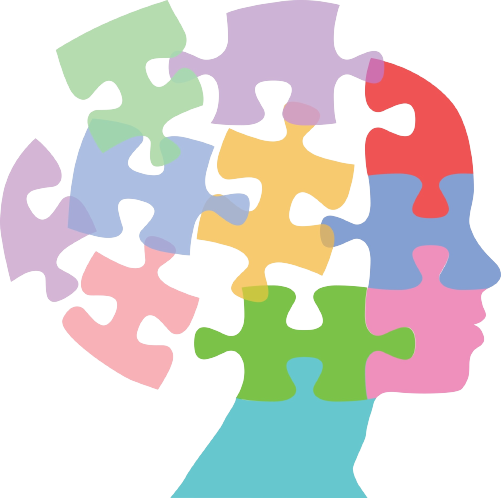Life can be uncertain and it’s easy to feel stuck when you don’t know which direction to turn. We often focus our energy on things we can’t control. But what if there was a way to take control of our lives by focusing on what we can control? By controlling controllables and letting go of what we cannot control, we can find direction in the midst of uncertainty.
Controlling Controllables
The first step is understanding exactly what “controlling controllables” means. It is about taking ownership over different aspects of your life that are within your power to change. This includes your attitude, emotions, thoughts, and intentions; as well as how you interact with others and how you spend your time. Controlling controllables means being mindful in all areas of your life so you can make conscious choices that will lead to better outcomes for yourself and those around you.
Letting Go of the Uncontrollables
It is important to remember that not everything in life is within our control. We cannot choose our circumstances or control the actions or decisions of other people. Therefore it is important to let go of trying to force things that are out of our hands. Instead focus on what you can do given the situation – look for opportunities in every problem instead of getting stuck in despair or frustration over something that cannot be changed.
Finding Direction
When we take charge over controllables and let go of uncontrollable aspects, it allows us to gain clarity on our next steps forward. With this newfound clarity comes confidence and a sense of purpose that helps us move forward even amidst uncertainty in other areas. Not only does this help us direct ourselves towards more positive outcomes but also keeps us from getting lost in fear-based thoughts that could prevent us from following through with a good plan even when things get tough.
By controlling controllables and letting go of uncontrollable factors, we gain clarity on where we should put our energy and become empowered by taking ownership over our lives despite any external challenges or uncertainties present at any given moment. This allows us to have an increased sense of self-worth while also directing ourselves towards more positive outcomes – both personally and professionally – by following through with actions based on realistic expectations rather than unrealistic hopes or fears!
The Emotional Benefits of Taking Control
When you start focusing on what you can control, something shifts emotionally. You stop feeling like a victim of your circumstances and start feeling like the author of your own story. This sense of agency not only builds emotional resilience but also empowers you to take meaningful action in all areas of your life.
Mindfulness can also help you recognize when you’re caught in an emotional reaction to something beyond your control. By pausing and breathing through those emotions, you give yourself a moment to step back and choose a healthier response. This not only improves emotional well-being but also builds a sense of self-control.
Controlling the controllables isn’t just a practical strategy—it’s an emotional game-changer. It helps you build resilience, regain confidence, and take ownership of your life, even when the world around you feels unpredictable.
Here are some of the most common questions I receive about Controlling Uncontrollables
How do I stop overthinking things I can’t control?
Overthinking stems from trying to control outcomes that are out of your hands. Focus on the controllable elements of the situation, such as your preparation, mindset, or response. Practicing mindfulness can also help quiet anxious thoughts.
What are the benefits of focusing on what you can control?
By focusing on controllables, you reduce stress, improve decision-making, and gain clarity on actionable steps, ultimately fostering emotional resilience and empowerment.
How can mindfulness help with controlling the controllables?
Mindfulness helps you stay present, allowing you to recognize and manage your emotions, and respond thoughtfully rather than react impulsively to situations beyond your control.
What are examples of things you can’t control?
Common examples include other people’s actions, external circumstances like the economy, or unforeseen events. Redirecting your focus away from these helps conserve energy for things you can control.
You Can Reclaim Control in Your Uncertain Times
Uncertainty is a part of life. But while you can’t control every twist and turn, you can control how you respond to them. By focusing on the things within your power, you create clarity, reduce stress, and empower yourself to move forward.
Remember, controlling the controllables is not about perfection. It’s about making intentional choices, one step at a time, and letting go of what’s beyond your reach. When you focus on what you can control—your thoughts, actions, and responses—you unlock new possibilities and move through life’s challenges with confidence and resilience.
In the end, life will always throw us curveballs. But by controlling what we can, we can stop chasing the rain and start thriving, even when the skies are cloudy.
Links and Resources for Controlling Uncontrollables
- “Master Emotional Regulation: Essential Skills for Greater Mental Clarity”
https://www.betterup.com/blog/emotional-regulation-skills - “Mindfulness for Emotional Regulation: How It Benefits Your Well-being”
https://mississippidatc.com/the-benefits-of-using-mindfulness-based-practices-for-emotional-regulation/ - “Focusing on What You Can Control: The Path to Personal Growth”
https://lifearchitekture.com/blogs/personal-development/focus-on-what-you-can-control - “Coping Strategies for What You Can’t Control: A Mental Health Guide”
https://psychcentral.com/blog/coping-with-what-you-cant-control - “Controlling the Controllables: How to Regain Control and Build Resilience”
https://www.kathieowen.com/blog/controlling-the-controllables

